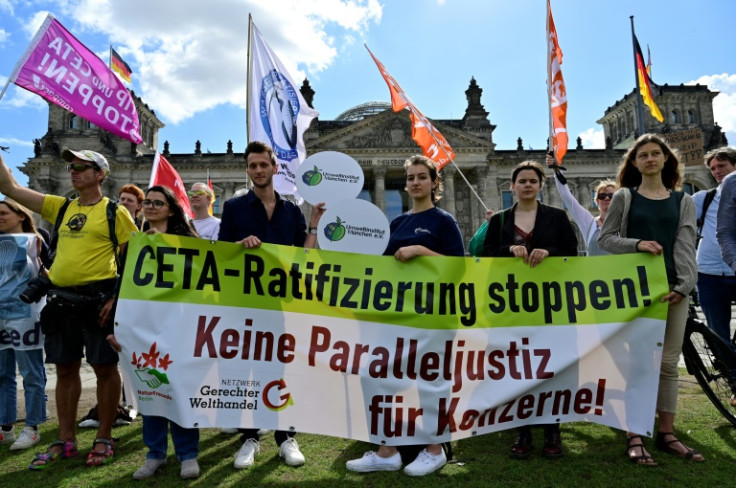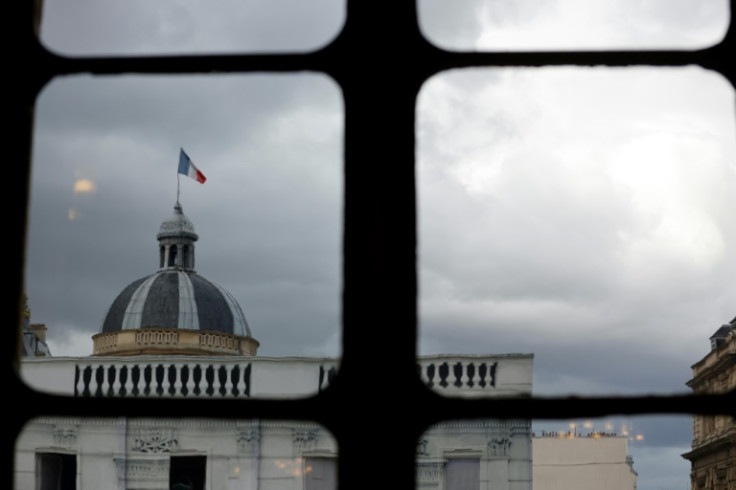France Faces High-risk Vote On EU-Canada Free Trade Deal

The French government on Thursday faces a risky vote on a controversial trade deal between the EU and Canada in the Senate where an unlikely alliance between left and right hopes to torpedo the pact.
The Comprehensive Economic and Trade Agreement (CETA) has been in force provisionally since 2017, but requires ratification in all European Union member countries to take full effect.
President Emmanuel Macron and his centrist parliamentary allies managed to get the deal approved in the National Assembly in 2019 by a slim margin, but backing by the upper house -- where they are in a clear minority -- is needed for ratification.
The French Communist party placed the treaty on Thursday's Senate agenda, with the stated aim of getting it defeated.
Accusing the government of treating parliament "like a doormat", Communist senator Fabien Gay announced "a political thunderclap" for Thursday.
In a rare temporary alliance, the leadership of the conservative Les Republicains (LR) party, which has a majority in the Senate, has also signalled its opposition to the trade pact.
"We need free-trade agreements, but not at the expense of our sovereignty, especially for food," said Bruno Retailleau, LR's leader in the Senate.
Like all EU trade deals, CETA was negotiated by the EU Commission, but also needs approval from each EU member.
Seventeen of them have ratified the deal, with the process in 10 countries -- including France -- still ongoing. Britain ratified the deal when it was still in the EU.
Cyprus's parliament is the only one to have rejected the agreement outright, over a controversy about a geographical indication for halloumi cheese.
But under EU rules, such a vote only impacts CETA's application if a government officially notifies the EU of the rejection, which Cyprus has not done. Instead, it plans to re-submit the proposal later.
If CETA is rejected in the French Senate, Macron would be expected to do the same.
The government has, meanwhile, accused the opposition of weaponising CETA ahead of June European elections seen as a key test of Macron's popularity.
"Let's not be naive," quipped Macron's minister for foreign trade, Franck Riester, saying the trade deal was being "instrumentalised in the middle of the European election campaign".
While the French government defends CETA, there is also plenty of opposition, notably around food safety, with critics pointing to Canada's laxer approach to genetically-modified organisms, hormones, pesticides and herbicides, and lower standards on animal welfare compared to the EU.
There have been angry demonstrations in several EU countries against the deal, including by climate activists.
Criticism has also come from farmers and industrial sectors, notably over access to the Canadian market, and regulations.
"Farming in central Canada is completely industrial and operates without any rules," said LR senator and professional farmer Laurent Duplomb, saying he hoped to "fire a warning shot" in the direction of the EU.
Meanwhile, senators have reported receiving an unusual amount of attention from companies, associations, the government and the Canadian embassy all hoping to sway them.
"I have never seen this much lobbying before a Senate vote," said one member of the upper house who declined to be identified.
Although a no-vote would not in itself kill CETA, the French government worries about the impact of any rejection.
"We have to be careful not to send a negative signal concerning an agreement that produces benefits," said a government source, on condition of anonymity.
The trade deal's backers say French exports to Canada increased by 33 percent between 2017 and 2023, while imports rose 35 percent, thanks to the agreement.
Wine and dairy producers are among the main beneficiaries, the government says.

© Copyright AFP 2024. All rights reserved.











